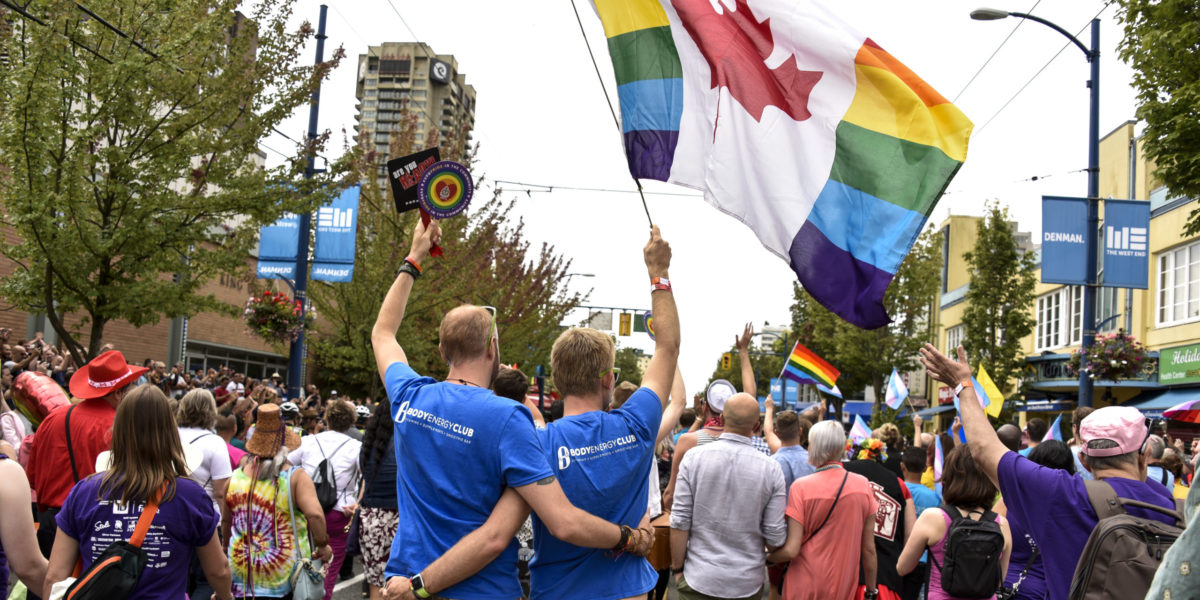As rainbow company logos fill our social media feeds, getting lost in the radiance of Pride month can be easy. But celebrations should be mixed with reflection and continued work towards justice and inclusivity, according to Pride at Work Canada (PAWC).
PAWC is an organization that educates and empowers employers to make workplaces 2SLGBTQ+ inclusive, equitable and just.
“The past two years have been a time where existing inequalities have been brought more to the surface. Diversity, Equity, and Inclusion, as well as Belonging, Dignity, and Justice are now needed in workplaces even more,” PAWC said on their website.
PAWC said that now is a time of potential. As celebrations this month pick up, celebrants have potential to bring lessons learned in the pandemic to post pandemic life. For PAWC that energy is focused on improving Canadian workplaces.
As a part of this campaign, PAWC held a workshop on Wednesday, June 15 titled “Supporting 2SLGBTQIA+ Resurgence beyond Performative Allyship,” to discuss concrete ways to promote workplace inclusivity.
“Rainbow logos, black squares, orange or pink t-shirts, or public diversity statements are ways many have tried to showcase their intention to be inclusive,” PAWC wrote on the webpage for the event. “However, on their own, these measures do nothing to achieve objectives related to reconciliation, diversity, equity and inclusion, solidarity or allyship.”
Allyship is about building a better workplace together, explained Karine-Myrgianie Jean-Francois, a Planning Advisor for Gender-based Analysis Plus.
“You need to be open and thoughtful and ready to unlearn some things” Jean Francois said.
Saylesh Wesley, an educator and knowledge keeper who also participated in the panel, said that many people get defensive when these tasks are presented to them. Some may not be prepared to acknowledge their privilege.
“We need to get past that defensiveness and realize there’s a beautiful destination ahead,” Wesley said.
Panelists at the event highlighted the importance of workplace policy change. PAWC works to monitor workplace equity and inclusivity for 2SLGBTQIA+ people.
A wage gaps exists for 2SLGBTQIA+
January 2021 saw the release of the Phase 1 report from a project exploring health, social and economic inequities faced by 2SLGBTQ+ people. The research was funded by Women and Gender Equality Canada, and carried out by Social Research and Demonstration Corporation in collaboration with Pride at Work Canada, Dr. Sean Waite at the University of Western Ontario and the Labour Market Information Council exploring health, social and economic inequities faced by 2SLGBTQIA+ people.
The project found that many 2SLGBTQIA+ people in the workplace are not paid the same as their heterosexual counterparts and experience higher levels of mental health issues. Despite this, many organizations position themselves as inclusive.
“For organizations first getting involved in inclusion efforts, pride is often the first thing that they do but it shouldn’t be,” said Jade Pichette, Director of Programs at PAWC in an interview with rabble.ca. “Marching at pride should only be something that happens when you have done that background work.”
Data collected by PAWC extends beyond this research project to their other work. PAWC’s workplace audit service provides employers with a 38 question survey to help evaluate diversity, equity and inclusion in their workplace.
Pichette said there have been close to 100 employers who have completed the audit. They said while analyzing the audit data, it is important to acknowledge that those who do the audit are already committed to improving diversity, equity and inclusivity in the workplace.
While PAWC’s workplace audit data is limited, it does showcase some trends on 2SLGBTQ+ needs in the workplace.
“The number one thing that employees look at with employers is whether they have the right policies,” Pichette said.
Policies that acknowledge 2SLGBTQIA+ belonging extends beyond family structures, support couples who are having children through surrogacy or adoption, protect people from harassment and create a safe and inclusive internal culture are just some of the policies Pichette said could help.
“Within a global context, Canadian employers are generally doing better than many others,” Pichette said, “but there is definitely a sense that many of these efforts have been tokenistic and aren’t producing the change we need to see.”
Editor’s note: On June 27 this article was updated to expand on PAWC’s Phase 1 report on economic inequalities facing 2SLGBTQIA+ individuals.



